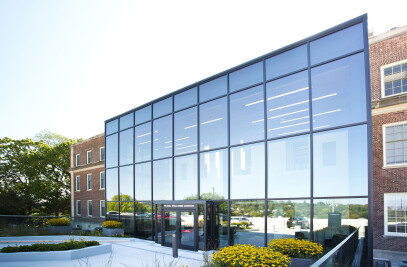In line with the spirit of the Festival des Architectures Vives, RHUBARB transcends traditional boundaries by merging architecture, sports, and environmental consciousness. This dynamic installation celebrates the vital role of spectators, transforming their movements into an immersive audio-visual experience.

Built in the courtyard of the 18th-century historical monument, Hôtel d'Aurès, in Montpellier, RHUBARB highlights the transformative potential of sustainable and interactive design. Embracing the festival's ethos of revitalizing dormant spaces and stimulating collective imagination, RHUBARB presents an adaptive, interactive creation that deeply engages its audience. Designed as a symbol of the importance of the presence of the audience to make art meaningful, Rhubarb received heartwarming interest from all age groups, making it the winner of the Public Prize, with an exceptional number of votes.


Inspired by the rhythm and evolution of the Olympics, where the audience remains a constant amidst changing sports, teams, and themes since ancient times, RHUBARB celebrates the active role of spectators. It underscores this idea by reversing the traditional role of the art and the audience: upon entering the pavilion, visitors become the art, while the pavilion itself acts as a spectator, mirroring and reflecting their movements in the courtyard. The installation's name, "Rhubarb," refers to the ambient background noise on a film set that completes the scene, mirroring the subtle yet vital nature of the audience's collective voice.


Incorporating elements of sound sculpture, RHUBARB transforms the viewer's movements into a symphony of audio experiences, creating an immersive encounter with art. This interactive installation comes alive with the audience's energy, converting their actions into a kinetic art piece with captivating sound and light displays. Interaction can be as simple as pushing, touching, or grazing hands over the pieces, creating wind, and more. Participants are encouraged to step inside the artwork, becoming the centre through its curved form.

The temporary installation consists of 1,000 pieces, varying in size and color. The diverse color palette references the hues found in Montpellier and the courtyard, symbolizing the richness of human diversity and inclusivity. Each piece is 3D-printed using eco-friendly filaments.

In the pursuit of environmental responsibility, Rhubarb explores sustainable production methods through three distinct types of 3D print materials: handcrafted PET filament, created from home waste PET bottles; industrial base filament Ultrafuse®️ rPET by BASF Forward AM, recycled from post-industrial PET waste; and a unique plant-based material by NOVINOV, made of miscanthus with biodegradable properties. These materials not only showcase the richness of the market, but also exemplify different paths toward sustainable architecture.

This collaborative approach symbolizes a harmonious fusion of industrial innovation and artisanal craftsmanship for the same production method. RHUBARB exemplifies a commitment to sustainability and innovation, showcasing the potential of eco-conscious practices within the industry.

Atelier DARN, founded by the architects Peker Ayan, Simay Cag and landscape architect Bilge Kobak, unites diverse global experiences to create innovative, sustainable architecture, winning numerous international awards through their collaborative expertise.

















































